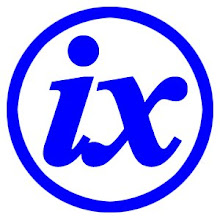This article will explain why some card holders see additional fees appearing on their card statement.
=========================================
Some customers have asked why they were charged a "Foreign Fee" when purchasing a product or service online.
Explanation of Foreign Fee
In 2005 Mastercard and VISA began imposing an additional fee for cross border transactions involving currency conversion. I.e. If a card was used outside the country it was issued from and the transaction was in a foreign currency an additional fee was applied to the processing charges by the card companies. The cross border fee is charged to the bank that issued the card, not to the cardholder and not to the merchant.
The issuing banks passed on the fee to the cardholders by adjusting of the currency that transaction was processed in to the currency of the card. In 2007, card companies and issuing banks in the US lost a class action suit brought against them for not disclosing this practice.
The card companies must now ensure that the issuing banks fully disclose additional fees passed on to cardholders.
VISA International Service Assessment (ISA)
VISA's cross border fee is now known as the International Service Assessment (ISA) fee.
VISA began charging issuing banks the ISA on all international purchases from April 2008. If a card is accepted by a foreign bank in the same currency as the bank that issued the card the ISA is 0.8%. If the transaction is made in a different currency then the ISA fee is 1%.
Prior to April 2008 VISA only applied the Cross Border fee of 1% when there was a foreign exchange conversion.
Mastercard Cross Border Fee (CBF)
In principle, Mastercard's Cross Border Fee is the same as VISA's but the wording is slightly different.
If a card is accepted by a foreign bank in the same currency as the bank that issued the card the CBF is 0.8%. If the transaction requires currency conversion an additional 0.2% is applied by Mastercard.
ISSUING BANK FEES
It is important to remember that the Mastercard CBF and VISA ISA fees are charges applied to the issuing bank and not to the cardholder or (us the merchant).
According to the card companies, it is up to the issuing banks as how they apply the fees. Some issuing banks are passing the fees on to the cardholder. Some banks are also applying an additional fee on top of the VISA and Mastercard fees. The additional fees range from 1% and 3%. Some banks choose not to pass on the Foreign Fee as they receive income from the interchange fee. The interchange fee is paid to the issuing bank for taking part in the transaction.
It is clear that some banks are attempting to make additional profit on transactions originating overseas. "Foreign fee" appearing on card holder's statements for card issued by US banks.
In Europe, VISA ISA and Mastercard CBF are collectively known as the cross border fee. Mastercard has stopped applying the CBF to European issued cards.
DISCLAIMER
This article was published on 2008-09-25 in good faith based on information available on multiple websites, including articles from the card companies and newspapers. The complete accuracy, especially in regards to fees the various charges may not be 100% accurate and we advise customers/cardholders to check with your bank to confirm the charges.
If you need more information or has questions, feel free to email us at Sales and Marketing Dept of Innovatronix
Subscribe to:
Post Comments (Atom)












No comments:
Post a Comment